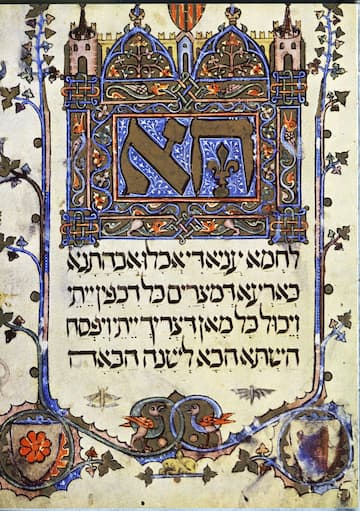The Ha Lachma Anya prayer, a poignant and symbolic invocation, stands as a foundational element of the Passover Haggadah. Originating from ancient Jewish tradition, this prayer serves as an invitation to all who are hungry or in need to join in the Passover meal, drawing a parallel between our current gathering and the historical plight of our ancestors in Egypt. As this prayer is recited, the seder plate is lifted, and the middle matzah is prominently displayed, emphasizing the transition from oppression to freedom, a central theme of the Passover narrative.
In its profound simplicity, Ha Lachma Anya encapsulates the essence of the Passover story, echoing the call for unity, remembrance, and hope. It embodies the spirit of hospitality, urging us to open our doors to those less fortunate, just as our forefathers did in Egypt. This prayer’s recitation not only marks the beginning of the Haggadah but also sets the tone for the entire evening, reminding us of the journey from slavery to liberation that we commemorate each year.
Below, you’ll find an audio recording of Jacob Pool reciting Ha Lachma Anya in the cherished Moroccan melody passed down from his great grandfather, Joseph Amar. This rendition carries with it the echoes of generations, connecting us to the traditions and melodies that have enriched the Passover experience for so many. As we listen, we are invited to reflect not only on the words of the prayer but also on the enduring legacy of those who have preserved and shared this beautiful tradition throughout the ages.
More on Ha Lachma Anya
[Audio Recording: Jacob Pool reciting Ha Lachma Anya in the Moroccan melody of his great grandfather, Joseph Amar]
הָא לַחְמָא עַנְיָא דִּי אֲכָלוּ אַבְהָתָנָא בְּאַרְעָא דְמִצְרָיִם. כָּל דִכְפִין יֵיתֵי וְיֵיכֹל, כָּל דִצְרִיךְ יֵיתֵי וְיִפְסַח. הָשַּׁתָּא הָכָא, לְשָׁנָה הַבָּאָה בְּאַרְעָא דְיִשְׂרָאֵל. הָשַּׁתָּא עַבְדֵי, לְשָׁנָה הַבָּאָה בְּנֵי חוֹרִין.
“THIS IS THE BREAD OF OPPRESSION our fathers ate in the land of Egypt. Let all who are hungry come in and eat; let all who are in need come and join us for the Pesaḥ. Now we are here; next year in the land of Israel. Now – slaves; next year we shall be free.”









Ohr HaChaim Yomi – Shemini